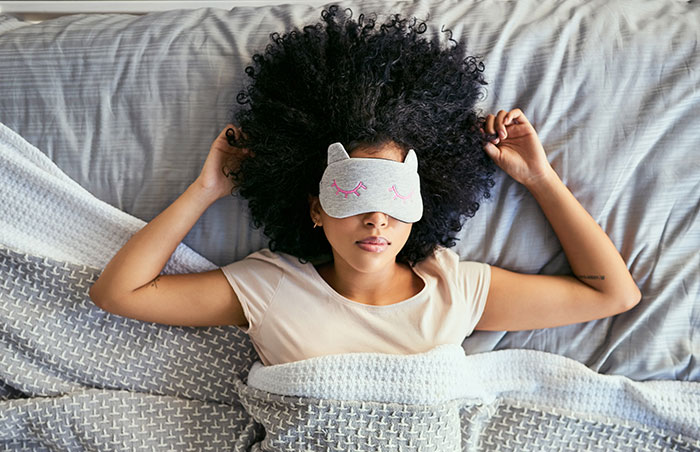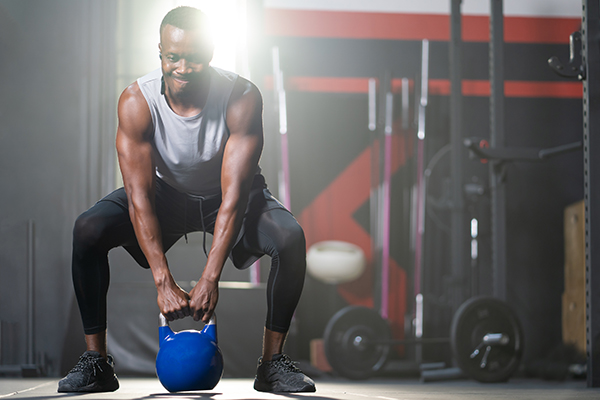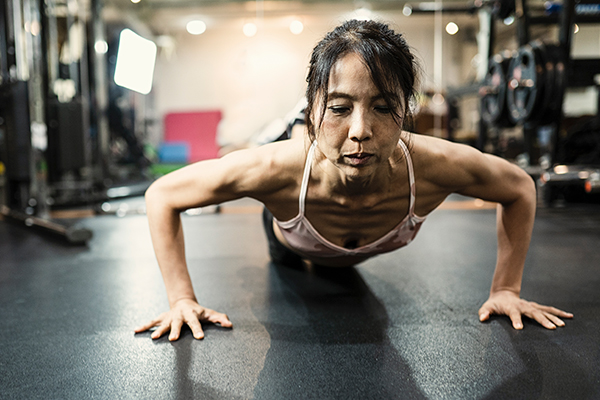Your alarm’s going off, and the sound is more agonizing than usual because you got to bed late then tossed and turned all night. You’ve dragged yourself through every moment of the day, but you know you still need to exercise. Should you be working out on no sleep? Or should you skip your workout altogether?
Should I Work Out on No Sleep?
The short answer is no — it’s not a good idea. Lack of sleep can adversely affect exercise form, concentration, performance, and muscle growth, according to Dr. Robert S. Rosenberg, who is board-certified in sleep medicine and the author of The Doctor’s Guide to Sleep Solutions for Stress & Anxiety.
“The bottom line,” he says, “is that you need to appreciate how important sleep is when you decide to exercise regularly.” So if you’re really tired, rather than working out on no sleep, you may want to consider rescheduling your next Beachbody On Demand workout for another day. Like, tomorrow.
To make sure you’re more rested and ready next time, Dr. Rosenberg recommends setting and sticking to a consistent sleep schedule, avoiding caffeine six to seven hours before bedtime, and turning off all devices that emit blue light an hour before bedtime.
If you’re still struggling, you can also try natural relaxation remedies such as meditation — or maybe it’s finally time to spring for products that might help, like blackout curtains and the right mattress.
How Lack of Sleep Can Affect Your Workout
1. Poor form and concentration
When you’re working out on no sleep — or even less than optimal sleep — your focus suffers. And if you’re not focused, you may not maintain proper form, increasing your potential for injury. This is especially important if you’ve got big compound exercises such as deadlifts and squats to perform.
Of course, you need to be focused for sportier kinds of workouts, too. “Lack of sleep causes a decrease in reaction time,” Rosenberg explains. So if your workout involves, say, a trainer tossing a medicine ball at your face, you can see how reaction time might be important.
2. Diminished performance
In a small study of the women’s tennis team at Stanford University, the players first maintained their usual sleep schedules for two to three weeks while performing sprinting and hitting drills.
Then, they were asked to prioritize getting 10-hour nights of sleep for five to six weeks. The results showed an association between those who got more sleep and those who showed improved performance in their drills. The study’s lead author, Cheri Mah, M.S., stated that several of the athletes who participated in the study realized for the first time that sleep was an important factor in their athletic performance.
3. Increased pain perception
No one wants their workout to feel harder than it has to be, but when you’re working out on little sleep you’re not giving your body adequate downtime to recuperate — that means you could end up wincing more than normal. Lack of sleep “decreases your pain threshold,” Dr. Rosenberg says, “so you are much more likely to feel pain during and after your workouts.”
4. Impaired growth and recovery
Many people don’t realize the strong impact that sleep has on muscle building. “It is during sleep that we release most of our growth hormone,” Dr. Rosenberg explains. “Lack of sleep could impair your body’s ability to recover from a workout and inhibit the growth of muscle.”
5. Decreased motivation
Of course, to build that muscle, you need to be motivated to work out in the first place. “People who don’t get enough sleep tend to become more moody, anxious, and fatigued, leading to them becoming less motivated to exercise,” says Dr. Rosenberg.
If you slept plenty but still need some motivation, check out these 28 training quotes.
How Do I Know If I’m Getting Enough Sleep?
So how much sleep is enough? The National Sleep Foundation recommends between seven and nine hours of sleep each night. But everyone is different — the key is to listen to your body. “If you wake up feeling refreshed and you don’t find yourself getting fatigued during the day, you are probably getting enough sleep,” Dr. Rosenberg says.
Of course, many people struggle to get the sleep they need. According to the Centers for Disease Control and Prevention (CDC), one in three adults doesn’t get the minimum recommended seven hours of sleep each night.




